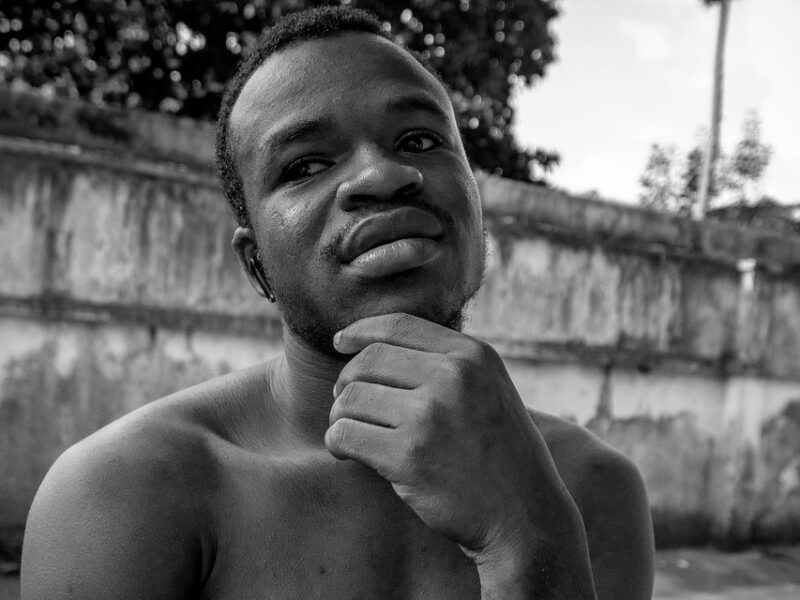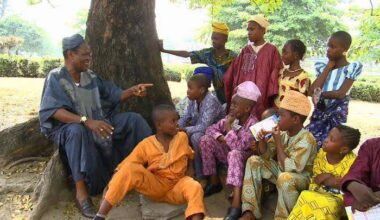Nigeria is a country known for its rich cultural diversity and vibrant language. From the Queen’s English to local dialects, Nigerians have a way of infusing their conversations with slangs that add flair and depth. These slangs are not only used for casual conversations but also find their way into various aspects of Nigerian life, including football matches, pidgin language, insults, and regional dialects.

In this comprehensive guide, we will explore the fascinating world of Nigerian slangs and their meanings. From football slangs that elevate the drama on the streets to pidgin slangs that bring people together, we’ll delve into the depths of Nigerian linguistic creativity. We’ll also uncover popular insults, regional slangs, and even military jargon that Nigerians use in their everyday lives. So, fasten your seatbelts and get ready to dive into the diverse and colorful world of Nigerian slangs.
Football Slangs
Watching a football match in Nigeria is an experience like no other. The passion and intensity that Nigerians bring to the game are unmatched. To fully appreciate the drama, fights, and cussing that accompany Nigerian football matches, it’s essential to be familiar with the following football slangs:
Otu
- Meaning: A lazy player.
- Usage: “That player is such an otu, he doesn’t contribute anything to the team.”
Baller
- Meaning: A professional player who is highly skilled.
- Usage: “We need that baller on our team, he can turn the game around.”
Felele
- Meaning: A light, rubber ball used for impromptu street matches.
- Usage: “Let’s play with the felele, it’s perfect for a quick game.”
Release
- Meaning: To pass the ball to a teammate.
- Usage: “Release the ball to me, I’m in a better position.”
Guiding
- Meaning: To block an opponent from accessing or getting close to the ball.
- Usage: “He was guiding the opponent so well, they couldn’t get past him.”
Idea
- Meaning: When a player impresses the viewers with a remarkable play, such as an impressive pass.
- Usage: “That idea was brilliant, he completely fooled the defenders.”
No bouncing
- Meaning: Not allowing the ball to hit the ground during a game.
- Usage: “Remember, no bouncing the ball, keep it in the air.”
Monkey post
- Meaning: A makeshift goalpost constructed with stones and other objects.
- Usage: “We don’t have proper goalposts, so we’ll use the monkey post.”
Man-on-you
- Meaning: When an opponent aggressively marks or follows a player throughout the game.
- Usage: “I couldn’t do much in the game, there was always a man-on-me.”
These football slangs are an integral part of Nigerian football culture. Understanding them will allow you to fully immerse yourself in the passion and drama that Nigerians bring to the game.
Pidgin Slangs
When Nigerians are not speaking the Queen’s English or their local dialects, they often resort to pidgin, a creole language that combines English with various Nigerian languages. Pidgin is widely spoken across Nigeria and has become a unifying language for people from different ethnic backgrounds. Here are some popular pidgin slangs and their meanings:
E choke
- Meaning: Something is overwhelming or impressive.
- Usage: “That party last night, e choke! It was amazing.”
Ehen
- Meaning: A versatile slang that can mean “and so?”, “okay”, “say what?”, “I get it”, “continue”, etc.
- Usage: “Ehen, tell me what happened next.”
Naso
- Meaning: Used with a dismissive tone, it can mean “You’re lying, but I hear you”, “I agree with you”, “I concur”, etc.
- Usage: “Naso, I don hear your story.”
Komot
- Meaning: Get out of the way, go away.
- Usage: “Komot for road, make I pass.”
Aza
- Meaning: Bank account. A benefactor may request your “aza” for a giveaway at any time.
- Usage: “I need to check my aza balance before I can help you.”
Ment
- Meaning: An abbreviation of “mental”, used to question a person’s sanity.
- Usage: “You dey ment? Why you dey behave like that?”
Knack
- Meaning: Literally means “to hit”, but in the Nigerian context, it also means “to have sex”.
- Usage: “I knack that babe last night, it was amazing.”
Sapa
- Meaning: A state of brokenness or extreme poverty.
- Usage: “Since I lost my job, I’ve been in serious sapa.”
Japa
- Meaning: To flee, escape, or run away.
- Usage: “When things got tough, I had to japa from that situation.”
Gbege
- Meaning: Trouble, problem, or tribulations.
- Usage: “I don’t want to enter gbege, I just want a peaceful life.”
Ajebo
- Meaning: Short for “ajebutter”, it describes someone born with a silver spoon, someone who is pampered and privileged.
- Usage: “She’s such an ajebo, she has never experienced any hardship.”
Pidgin slangs are an essential part of Nigerian communication. They add personality and flavor to conversations and make them more relatable to a wide range of people.
Nigerian Insults
While Nigerians are generally peaceful people, they have a way with words when it comes to verbal attacks. Insults in Nigeria can be creative, sharp, and sometimes humorous. Here are some Nigerian insults that you should know (use with caution!):
Bolo
- Meaning: Used to describe someone who is slow and lacking street-smartness.
- Usage: “That guy is such a bolo, he can’t even handle basic tasks.”
Mugu
- Meaning: A slang for someone who is easily deceived or taken for a ride.
- Usage: “Don’t be a mugu, be careful who you trust.”
Kolo
- Meaning: Used to question the sanity of an individual. Can be interchangeable with “ment”.
- Usage: “Are you kolo? How can you believe such nonsense?”
Oversabi
- Meaning: An “I too know” person, someone who thinks they know everything.
- Usage: “Stop being an oversabi, nobody likes a know-it-all.”
Amebo
- Meaning: Someone who gossips excessively.
- Usage: “She’s such an amebo, she knows everybody’s business.”
Wobia
- Meaning: A high-impact slang for insulting a glutton, someone who can sell their birthright or family members for food.
- Usage: “Don’t be a wobia, learn to control your appetite.”
Ode
- Meaning: Originally describes a fool, but can also be used as an expression of affection among friends.
- Usage: “You’re such an ode, but I love you anyway.”
Nigerian insults are not meant to be taken too seriously, but they showcase the wit and humor that Nigerians possess. It’s important to use them in appropriate contexts and with a good sense of humor.
Popular Yoruba Slangs

The Yoruba people of Nigeria have their own unique slangs that add color and depth to their conversations. Whether it’s a witty insult or a term of endearment, Yoruba slangs have a way of making everyday interactions more interesting. Here are some popular Yoruba slangs and their meanings:
Lori iro
- Meaning: Used when someone is telling lies that are obvious and can’t be believed.
- Usage: “Don’t listen to him, he’s just lori iro.”
Mafo
- Meaning: Made popular by the singer Naira Marley, it means “don’t be intimidated, bothered, or rattled.”
- Usage: “Mafo, let them say whatever they want, it doesn’t matter.”
Wa ti ma gbo (WTMG)
- Meaning: Derived from Adekunle Gold’s hit record with Davido, it means “You must’ve heard.”
- Usage: “WTMG? Everyone knows about that already.”
Omo iya mi
- Meaning: Similar to the English slang “My bro”, it is used between guys whose relationship has grown beyond ordinary friendship.
- Usage: “Omo iya mi, how far? Long time no see.”
Idan
- Meaning: A young person who has it all. Someone who works hard and plays even harder.
- Usage: “He’s such an idan, always hustling and making money.”
O lule
- Meaning: Made popular by Bola Tinubu, it means “someone who has suffered defeat.”
- Usage: “After the election, he became o lule.”
Sora fun obinrin
- Meaning: Be wary of women, literally.
- Usage: “Sora fun obinrin, they can be unpredictable.”
Otilo
- Meaning: Made popular by dancer Poco Lee, it means “it has gone.”
- Usage: “The money is otilo, I’ve spent it all.”
O por
- Meaning: It means “it’s plenty” or “it’s abundant.”
- Usage: “The food at the party was o por, I couldn’t eat it all.”
Gbe mi de be
- Meaning: Also “gbe mi trabaye”, it means to get high on alcohol or weed.
- Usage: “Let’s gbe mi de be tonight, it’s been a stressful week.”
Yoruba slangs are an integral part of Yoruba culture and language. Understanding them will help you navigate conversations and connect with Yoruba-speaking individuals on a deeper level.
Nigerian Gen Z Slangs
As language evolves, so do slangs. Nigerian Gen Z has their own set of slangs that reflect their unique experiences and cultural references. These slangs are often influenced by social media, music, and popular culture. Here are some Nigerian Gen Z slangs:
Clapback
- Meaning: A fitting response, usually one that stings, to someone who comes at you.
- Usage: “She really delivered a solid clapback to that rude comment.”
L
- Meaning: Short for “loss”, used when someone fails or experiences a setback.
- Usage: “I took a major L on that test, I didn’t study enough.”
W
- Meaning: Short for “win”, used when someone succeeds or achieves something.
- Usage: “I got the job! Big W for me.”
Salty
- Meaning: Angry or jealous.
- Usage: “She’s so salty because she didn’t get invited to the party.”
Opp
- Meaning: Short for “opposite”, used to describe someone you dislike or have a problem with.
- Usage: “He’s my opp, I can’t stand him.”
Fam
- Meaning: Equivalent to “bro” or “squad” in Gen Z lingo.
- Usage: “What’s up, fam? Let’s hang out tonight.”
God, abeg
- Meaning: Expressing exhaustion or frustration, asking for divine intervention.
- Usage: “God, abeg, I can’t deal with this anymore.”
Bop
- Meaning: Referring to music that is enjoyable and hits the right spot.
- Usage: “This song is such a bop, I can’t stop dancing.”
Flop
- Meaning: Referring to something that is a failure or should not have happened.
- Usage: “That movie was a flop, I wasted my money.”
We meuve
- Meaning: Life goes on, keep moving forward.
- Usage: “Don’t let setbacks bring you down, we meuve!”
We outside
- Meaning: Used to indicate that you’re ready to party or have a good time.
- Usage: “We outside tonight, it’s going to be lit!”
Baddie
- Meaning: Referring to a confident and attractive woman.
- Usage: “She’s a baddie, everyone wants to be like her.”
Rent-free
- Meaning: Something or someone that occupies your mind constantly.
- Usage: “He’s living rent-free in my head, I can’t stop thinking about him.”
Periodt
- Meaning: Used to emphasize the end of a discussion or statement.
- Usage: “I’m right, periodt!”
Trenches
- Meaning: Referring to the ghetto or a rough neighborhood.
- Usage: “He grew up in the trenches, but he made it out.”
FOMO
- Meaning: Fear of missing out.
- Usage: “I couldn’t go to the party because of FOMO.”
IYKYK
- Meaning: If you know, you know.
- Usage: “That inside joke, IYKYK.”
JK
- Meaning: Just kidding.
- Usage: “I didn’t mean what I said, JK.”
GOAT
- Meaning: Greatest of all time.
- Usage: “He’s the GOAT, no one can compare to him.”
HMU
- Meaning: Hit me up.
- Usage: “If you need anything, HMU.”
G2G
- Meaning: Good to go.
- Usage: “I finished my work, I’m G2G.”
TBH
- Meaning: To be honest.
- Usage: “TBH, I didn’t like the movie.”
NGL
- Meaning: Not gonna lie.
- Usage: “NGL, I’m really excited about the concert.”
WFH
- Meaning: Working from home.
- Usage: “I don’t have to commute anymore, I’m WFH.”
WYD
- Meaning: What you doing?
- Usage: “WYD tonight? Let’s hang out.”
WDYM
- Meaning: What do you mean?
- Usage: “I don’t understand, WDYM?”
IKR
- Meaning: I know, right?
- Usage: “That movie was amazing, IKR?”
ISTG
- Meaning: I swear to God.
- Usage: “ISTG, I didn’t cheat on the test.”
NGL
- Meaning: Not gonna lie.
- Usage: “NGL, I’m really excited about the concert.”
ATP
- Meaning: At this point.
- Usage: “ATP, we just have to accept the situation.”
TYSM
- Meaning: Thank you so much.
- Usage: “TYSM for helping me out.”
YKTV
- Meaning: You know the vibes.
- Usage: “YKTV, it’s always a good time with us.”
WYA
- Meaning: Where you at?
- Usage: “WYA? Let’s meet up.”
Nigerian Gen Z slangs reflect the ever-changing landscape of language and pop culture. Embracing these slangs will help you connect with the younger generation and stay up-to-date with the latest trends.
Popular Igbo Slangs
The Igbo people of Nigeria have a rich cultural heritage and a distinct language. Igbo slangs are an essential part of Igbo communication, adding depth and nuance to everyday conversations. Here are some popular Igbo slangs and their meanings:
Odeshi
- Meaning: It’s not leaking. Refers to someone with supernatural powers who never cries when in pain.
- Usage: “He’s like odeshi, nothing seems to affect him.”
Biko
- Meaning: Please. Used to beg or request something politely.
- Usage: “Biko, help me with this task.”
Onye isi okanga
- Meaning: Someone who stands out as a trendsetter.
- Usage: “He’s the onye isi okanga of our group, always setting fashion trends.”
Icha anya
-
Meaning: Used to describe someone who is stoned or under the influence of drugs.
-
Usage: “He’s icha anya, I think he’s high.”
Nkita la’cha ike gi
- Meaning: “May a dog lick your butt.” An insult used to wish ill upon someone.
- Usage: “I can’t believe he said that to me, nkita la’cha ike gi!”
Tuu
- Meaning: Nonsense. Used to dismiss something as irrelevant or untrue.
- Usage: “What you’re saying is tuu, I don’t believe it.”
Asa
- Meaning: Fine girl.
- Usage: “She’s such an asa, always looking stylish.”
Ote
- Meaning: Used to refer to something of quality or an original product.
- Usage: “This bag is ote, it’s authentic.”
Nna ehn
- Meaning: Similar to the Nigerian pidgin slang “Nawa o”, it expresses surprise, shock, or disbelief.
- Usage: “Nna ehn, I can’t believe what just happened.”
Tatu aka
- Meaning: Someone who spends money extravagantly.
- Usage: “He’s a tatu aka, he doesn’t know how to save.”
Jisi ike
- Meaning: Keep it up, do well.
- Usage: “I’m proud of you, jisi ike.”
Isi ewu
- Meaning: Refers to a popular Igbo delicacy, goat head. Can also be used to describe someone whose head resembles a goat’s.
- Usage: “Why are you acting like isi ewu? Stop behaving foolishly.”
Nnukwu isi
- Meaning: Big head. Can be used affectionately or to describe someone who is arrogant.
- Usage: “Don’t let your nnukwu isi get to your head.”
Igbo slangs are an integral part of Igbo culture and language. Understanding these slangs will help you connect with Igbo-speaking individuals and appreciate the richness of their traditions.
Popular Hausa Slangs
The Hausa people of Northern Nigeria have a vibrant culture and language. Hausa slangs reflect the unique characteristics of the Hausa people and add flavor to their conversations. Here are some popular Hausa slangs and their meanings:
Jaara
- Meaning: Derived from the Hausa word “gyara”, it means to “add extra”. Can refer to extra food, money, or love.
- Usage: “Can you jaara the food for me? I’m still hungry.”
Maigad
- Meaning: A security man. Combination of the Hausa word “mai” and the English word “guard”.
- Usage: “Tell the maigad at the gate to let me in.”
Kayanmata
- Meaning: A sexual stimulant for women. Made popular by Instagram vendors.
- Usage: “Have you tried that kayanmata? They say it works wonders.”
Burantashi
- Meaning: A brand of aphrodisiac that stimulates men.
- Usage: “He’s always taking burantashi, no wonder he’s always in the mood.”
Kudi
- Meaning: The popular Hausa slang for money.
- Usage: “I need some kudi, do you have any cash?”
Shikena
- Meaning: That is it. No further additions or subtractions.
- Usage: “Shikena, we can proceed with the plan as discussed.”
Hausa slangs reflect the vibrant culture and traditions of the Hausa people. Understanding these slangs will help you connect with Hausa-speaking individuals and appreciate their unique linguistic expressions.
Nigerian Military Slangs

The Nigerian military has its own set of slangs and jargon that are used within its ranks. These slangs add a sense of camaraderie and understanding among soldiers. Here are some Nigerian military slangs:
Latrine queen
- Meaning: The soldier in charge of cleaning toilets.
- Usage: “The latrine queen better do a good job, or else we’ll have a dirty barracks.”
Clown
- Meaning: A cadet in their first year of training.
- Usage: “Look at that clown, he still doesn’t know how things work around here.”
Boye
- Meaning: Fancy Nigerian military slang for “garri”, a staple food made from cassava.
- Usage: “I need some boye to go with my soup.”
Massage
- Meaning: When a soldier wants to give you a massage, it means you’re about to get some premium beating or punishment.
- Usage: “I saw the sergeant giving him a massage, he must have messed up.”
Blue Falcon
- Meaning: A betrayer, someone who exposes their comrades to trouble or danger.
- Usage: “Don’t trust him, he’s a blue falcon.”
Bravo Zulu
- Meaning: A compliment that means “well done”.
- Usage: “Bravo Zulu, you handled that situation perfectly.”
Advance
- Meaning: Move forward.
- Usage: “Advance to the next position.”
Disarm
- Meaning: To retrieve or take away weapons.
- Usage: “Disarm the enemy and secure their weapons.”
Royal Highness
- Meaning: A Nigerian military slang for a soldier’s number one girlfriend. She’s considered the queen above other queens.
- Usage: “He treats her like a royal highness, she’s his favorite.”
Nigerian military slangs are a unique way for soldiers to communicate with one another. Understanding these slangs will give you a glimpse into the camaraderie and bond that exists within the Nigerian military.
Port Harcourt Slangs
Port Harcourt, the capital city of Rivers State in Nigeria, has its own set of slangs that are unique to the region. These slangs reflect the local culture and add a distinct flavor to conversations. Here are some popular Port Harcourt slangs:
Pam
- Meaning: Hide or relax, depending on the context.
- Usage: “Pam, nobody is looking for you.”
Abobi
- Meaning: Referring to your friend or guy.
- Usage: “Abobi, how far? Long time no see.”
White
- Meaning: Referring to ₦50, a common currency denomination in Nigeria.
- Usage: “Can you lend me some white? I’m short on cash.”
Movement
- Meaning: Used to signal your exit or departure.
- Usage: “It’s time for movement, let’s go.”
Malle
- Meaning: Mother, used as a term of endearment.
- Usage: “Hey malle, how are you doing?”
Disembark
- Meaning: To stop or go away.
- Usage: “Disembark from here, we don’t want any trouble.”
Who goes
- Meaning: Who is that?
- Usage: “Who goes? I don’t recognize that person.”
Conti
- Meaning: To be afraid or scared.
- Usage: “Don’t be conti, it’s just a small issue.”
Die it
- Meaning: To stop talking or be quiet.
- Usage: “Die it, you’re saying too much.”
Arrange
- Meaning: To help with something or assist.
- Usage: “Please arrange for me, I need a favor.”
Port Harcourt slangs reflect the local culture and add a unique flavor to conversations among the people of the region. Understanding these slangs will help you connect with Port Harcourt natives and appreciate their local dialect.
Nigerian Slangs for Money
Nigerians love to come up with creative names for money. These slangs reflect the importance and value that Nigerians associate with their currency. Here are some popular Nigerian slangs for money:
Wazo
- Meaning: Referring to ₦50.
- Usage: “I need some wazo to buy snacks.”
Figo
- In this comprehensive guide, we will explore the fascinating world of Nigerian slangs and their meanings. From football slangs that elevate the drama on the streets to pidgin slangs: Referring to ₦50.
- Usage: “Do you have figo? I need to pay for this.”
10 Fiba
- Meaning: Referring to ₦100.
- Usage: “I owe you 10 fiba, let me pay you back.”
20 Fiba
- Meaning: Referring to ₦200.
- Usage: “Can you lend me 20 fiba? I’ll pay you back.”
Muri
- Meaning: Referring to ₦20.
- Usage: “I only have muri, is that enough?”
Nigerian slangs for money reflect the resourcefulness and creativity of Nigerians in their everyday lives. Understanding these slangs will help you navigate financial conversations and appreciate the cultural significance of money in Nigeria.
Conclusion
Nigerian slangs are a fascinating and vibrant aspect of Nigerian culture. From football matches to everyday conversations, these slangs add flair, wit, and depth to interactions. Whether it’s pidgin slangs, insults, regional dialects, or military jargon, Nigerian slangs reflect the diversity and creativity of the Nigerian people.
In this comprehensive guide, we’ve explored various categories of Nigerian slangs and their meanings. We’ve delved into football slangs that amplify the drama on the streets, pidgin slangs that bring people together, insults that showcase the wit of Nigerians, and regional slangs that reflect the unique characteristics of different Nigerian cultures. We’ve also uncovered military jargon, Port Harcourt slangs, and even slangs for money.
By understanding and embracing Nigerian slangs, you’ll be able to connect with Nigerians on a deeper level, appreciate their unique linguistic expressions, and navigate conversations with ease. So, the next time you find yourself in Nigeria, don’t be surprised if you hear someone say “E choke” or “Biko”. Embrace the slangs, join the conversation, and experience the rich tapestry of Nigerian culture.






